The Fake Drake AI song “Heart On My Sleeve” showed the world the possibilities – and threats – of the technology, and now a new bill in Tennessee is helping to prevent such dupes from occurring.
According to Billboard, Tennessee governor Bill Lee signed the ELVIS Act into law on Thursday (March 21), which enhances the state’s old right of publicity law that had explicit protections for one’s “name, photograph, or likeness” to include voice, and AI-specific concerns for the first time.
The bill, more formally named the Ensuring Likeness Voice and Image Security Act of 2024, replaces the Personal Rights Protection Act of 1984, which was passed, in part, to extend Elvis Presley’s publicity rights after he passed away — at the time, Tennessee did not recognize a postmortem right of publicity.
The ELVIS Act was introduced by Gov. Lee in January along with State Senate Majority Leader Jack Johnson and House Majority Leader William Lambert.
The aforementioned “Heart On My Sleeve” is a song composed and arranged by Ghostwriter, who processed vocals via artificial intelligence to mirror the voices of both singers without their actual touch. Despite its controversial presence in the music space, the song did well when it was released last spring and has continued making the rounds despite being taken down multiple times.
Speaking about the track’s eligibility for music’s highest accolade, a Grammy, Recording Academy CEO Harvey Mason Jr. told the New York Times: “It’s absolutely eligible because it was written by a human.” However, soon after he did a U-turn, explaining that because “the vocals were not cleared by the label or the artist, and the song is not commercially available,” it was not, in fact, eligible for a Grammy.
Other deep fakes have popped up as well, including DMX and 2Pac, Biggie, Kendrick Lamar and more.
Timbaland even revealed plans to launch a startup that would “commercialize artificial intelligence software” with the goal of “revolutionizing how songs are made.” The producer believes AI voice filters will “open up an unprecedented world of creativity in music,” and hopes his startup will “usher in the new era.”
Young Guru, however, is among the many musicians who is not pleased about the direction the music industry is headed with regard to the technology.
“@Timbaland I love you my brother. You know I do. But this ain’t it!!!” he wrote in response to Timbo’s plans. “This is dangerous and at a basic level it’s corny!! I will be on the side of the luddites.”
After a fake Kendrick Lamar song surfaced online last February, Guru explained why he was so against it.
“This has dominated my Howard group chat for a couple days. Ok I’m at the point where I can voice my concerns with our current state of AI,” he wrote on Instagram. “I have followed as many versions of what AI could do for some years now.
“I remember being at MIT and students showing me a project where they were actively feeding a computer ‘All’ the jazz records that ever existed. So that AI could analyze and create music in any style of any musician.”
And when an AI-generated JAY-Z verse went viral last March, he continued to speak out against AI and raised concerns over what it could mean for artists’ rights.
“I’ve been trying to tell everyone that this is where we are now with AI,” he said. “For some reason this one got everyone’s attention. So what do we do. On one hand I’m well aware that you can’t stop technology. Once the genie is out of the box you can put him back in.”
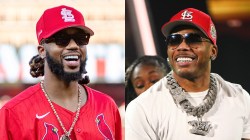

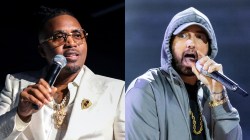


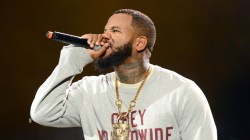
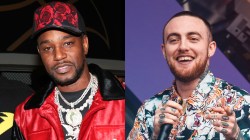
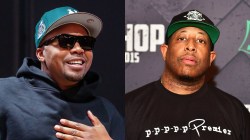
![Method Man Admits He Didn't Like Drake's "Wu-Tang Forever": "I [Wasn't] Getting On That"](https://hiphopdx.com/wp-content/uploads/2025/12/method-man-drake-wu-tang-forever-remix.jpg?w=250)
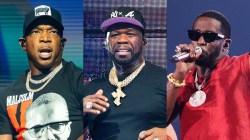
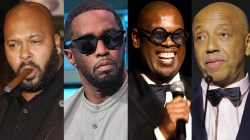
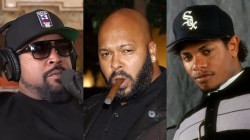
Im down with AI cloning rappers voices. You still gotta know how to rap to record an AI song and change your voice to sound like theirs. They really get mad when someone eats off their plate. Rappers are the definition of elites. Ban voice cloning, it wont be long before they use AI to create original voices and autotune them so much the performers can just wear masks. In other words, fuck em. The days of celebrity worship will come to an end in time.